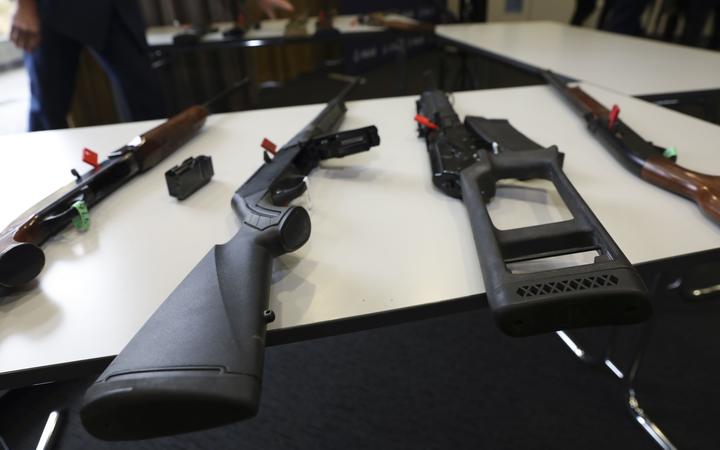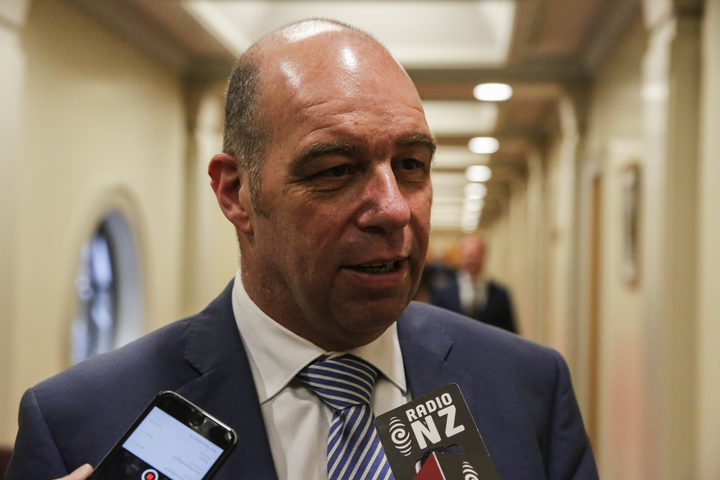The National Party says the police should be doing more to find out how many now prohibited firearms are in the country.
Deputy Police Commissioner Mike Clements gave a briefing on the gun buyback scheme to the Justice Select Committee.

Nearly 20,000 guns and 74,000 parts have been handed in to police, with three months to go in the gun buy-back scheme.
Mr Clements said an estimate of 56,000 to 173,000 prohibited firearms was given to help price the gun buyback scheme.
But National Party police spokesperson Brett Hudson said that figure was too broad and at odds with the information he'd been given.
"The police themselves in advice to ministers, their own high end number was 240,000 which is quite considerably more than the number he quoted that came from the KPMG report," he said.
Mr Hudson said the police had the capacity to get a better estimate.

"The deputy commissioner confirmed in the select committee today that since 1983 every lawfully imported firearm into New Zealand has had an import permit from New Zealand Police.
"So why didn't they set about getting all of those records and establishing to far greater accuracy how many now prohibited firearms there are?" he said.
- Only 10 per cent of banned firearms collected halfway through buyback
- AR-15 rifle parts allegedly used in Christchurch mosque attacks ruled illegal by police
- Gun owners unhappy more weapons are being banned
- Police investigate man who allegedly tried to game gun buyback
- I considered selling
He said the public were not going to feel safe if they believed there could be tens of thousands of prohibited firearms still in circulation.
But the Deputy Police Commissioner Mike Clements explained it was not that straightforward.
"If the process in historical sense had been that people import firearms and that the capture of firearms [data] was against a category we now know to be prohibited, that would be a fair question.
"The reality is that hasn't been the process and police hasn't captured the information in that way," he said.
Mr Clements said he would love to have an accurate picture, but police needed to focus on what they did know - the 14,000 registered e-category military style semi-automatics.
"We've allowed a period of two-and-a-half months for those people to come forward and we just want a gentle reminder and have already started to reach out to these people and say you know there is an amnesty and buyback on, you're a person who's got a firearm that's now prohibited, because it's registered in our system and you need to bring it forward," he said.
About 2500 of those guns have been handed in.
But Mr Clements said there was still time to get those numbers up.
"What we've been told from Australia whether we like it or not, the habit is to have a surge at the start, a lull in the middle and then a surge at the end.
"What I'm trying to do through my messaging is to say can we please use the entire six months and get the firearms rolling in," he said.
Owners have until 20 December to hand in their guns, he said.
However, he added like in Australia it was likely to take years to get the guns back and was not ruling out future amnesties in the future.




